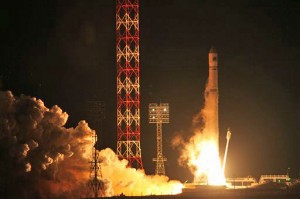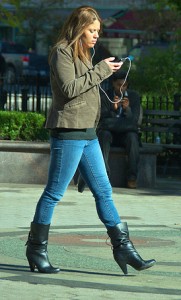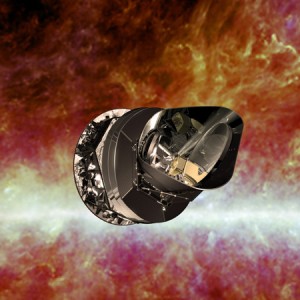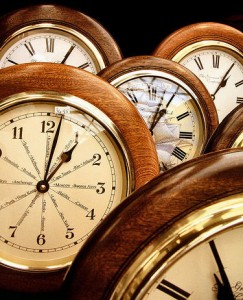
Nov. 9, 2011 The Zenit-2SB rocket with the Phobos-Ground probe blasts off from its launch pad in Kazakhstan. (AP)
Did powerful radar signals from the United States bring down a Russian Mars moon probe?
Russian scientists will examine whether a U.S. radar station transmitted radar signals which inadvertently interfered with the Phobos-Ground probe that recently fell back to Earth.
Experts say the assertion is far-fetched.
NASA says the military radar equipment in question wasn’t operating at the time of the Russian equipment failure.
According to spokesman Bob Jacobs, the space agency was using radar in the Mojave Desert in the western United States and in Puerto Rico.
The Phobos-Ground space probe, which launched aboard the Zenit-2SB rocket in November, was stuck in Earth’s orbit for two months before it crashed into the Pacific Ocean near Chile’s west coast on Sunday.
Officials leading the Russian government probe into the failure say their experiments should help prove or dismiss the possibility of the radar’s impact.
However, some U.S. experts have suggested the Russians should look for causes of the failure closer to home.
Headphones put pedestrians in danger
It’s easy to get lost in your own little world when your earphones are plugged into an MP3 player, playing your favorite tunes.
But, if you’re out walking, jamming to music and not paying attention to your surroundings, you could find yourself in serious trouble, according to newly released research.
With the music cranked up and your earphones blocking out most outside sound, you might not hear the cars, trucks, trains and other dangers that surround you.
A new study finds serious injuries to pedestrians wearing headphones – especially teens and young adult males – have more than tripled in six years.
In many cases, the moving vehicles sounded their horns, but the earphone-wearing pedestrians couldn’t hear them, which led to fatalities in nearly three-quarters of cases.
“Everybody is aware of the risk of cell phones and texting in automobiles, but I see more and more teens distracted with the latest devices and headphones in their ears,” say study lead author Dr. Richard Lichenstein, of the University of Maryland School of Medicine and University of Maryland Medical Center. “Unfortunately, as we make more and more enticing devices, the risk of injury from distraction and blocking out other sounds increases.”
The researchers hope that the results of this study will alert people to the dangers of earphone-related accidents as well as how they can be prevented.
Measuring the last light of the Big Bang
This past Saturday, the European Space Agency’s Planck mission finished its survey of the remnants of the Big Bang, although the first results from that survey won’t be available for about a year.
According to the Big Bang Theory, the universe was created following a massive explosion about 13.7 billion years ago.
A half-million years later, the fireball created by the Big Bang cooled down to temperatures of about 4000ºC filling the sky with bright, visible light.
Scientists explain that, as the universe continues to expand, that light has dimmed to a point where it can only be measured in microwave wavelengths.
Using the instruments aboard the Planck spacecraft, launched in May 2009, ESA scientists are studying various patterns that were imprinted in the light left by the Big Bang. They hope it will help them understand the very beginnings of our universe, long before galaxies and stars were first formed.
The results of this survey are widely anticipated by scientists. ESA will release the data in two stages; the first 15.5 months’ worth in early 2013, and then the data from the entire mission will be released a year after that.
Should we get rid of the leap second?
This is a leap year, which means that instead of the normal 28 days, February 2012 will get an extra or “leap” day this year. But did you know that for at least the past 40 years, we’ve also had leap seconds?
Scientists have padded our measurement of time to keep the super accurate atomic clocks from getting ahead of solar time due to variations of Earth’s orbit.
After 10 years of discussion, the matter of whether the leap second stays or goes will be put to a vote this week at a meeting of the International Telecommunication Union in Geneva.
Those who support eliminating the leap second – breaking the centuries-long link between sunrise and sunset – say it would provide a more steady and accurate time than we have today.
Those who oppose the proposal say that, despite being hard to predict more than six months in advance, leap seconds have been used successfully since 1972.
Many in the United States and France want to eliminate the leap second.
However, China worries the change could hurt astronomers, who need to be able to compare and refer to observations made over thousands of years as part of their work.
It also seems that Britain isn’t too keen on the idea either; warning that eliminating the leap second could spell the end of Greenwich Mean Time, or GMT, as a meaningful measure.
What are your thoughts on this? Should we keep or get rid of the leap second?
























Comments are closed.